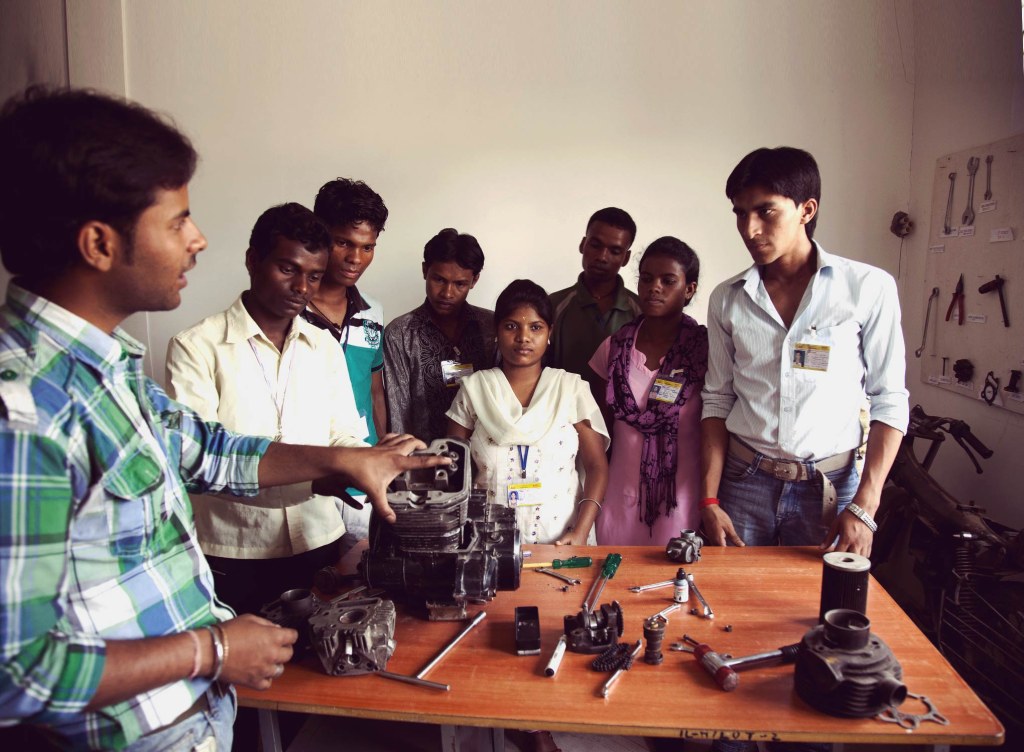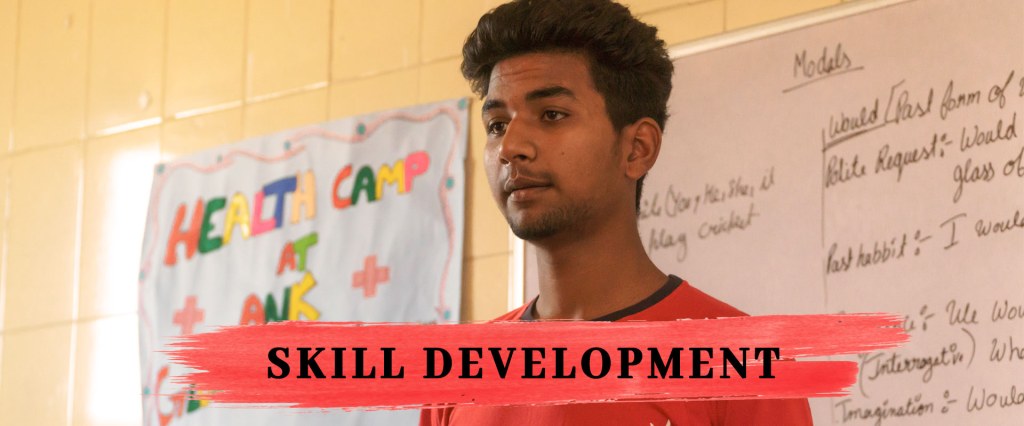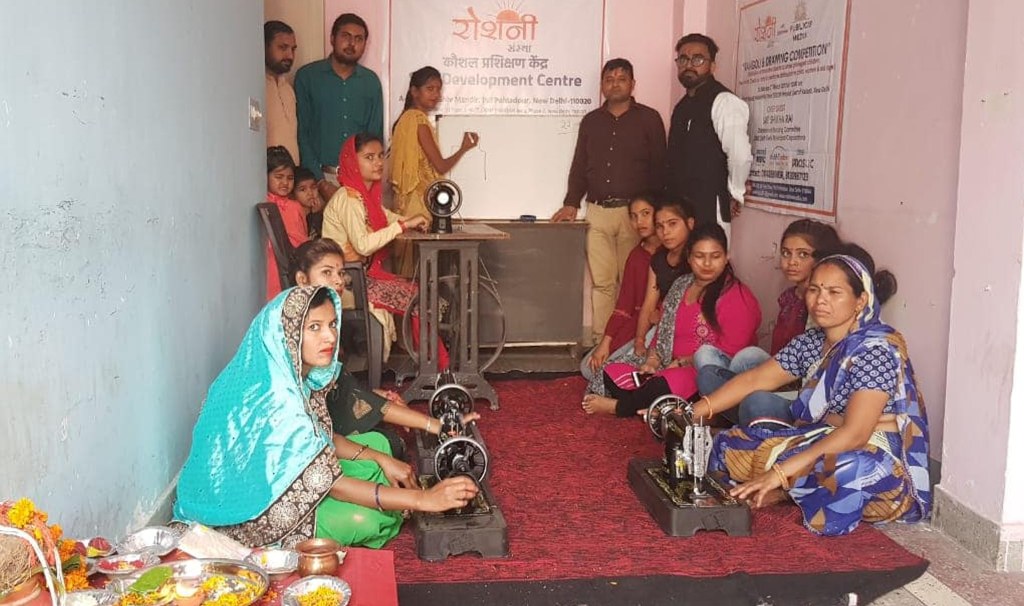Transforming Lives: Empowering Skill Development NGOs In India For A Brighter Future
Skill Development NGOs in India
Introduction
Hello Readers,
3 Picture Gallery: Transforming Lives: Empowering Skill Development NGOs In India For A Brighter Future



Welcome to our article on skill development NGOs in India. In this piece, we will explore the various organizations that are working towards enhancing the skills of individuals in India. Skill development is crucial for economic growth and personal advancement, and NGOs play a vital role in providing training and educational opportunities to the underprivileged sections of society.

Image Source: csrbox.org
India, with its large population and diverse workforce, requires a robust skill development ecosystem to meet the demands of a rapidly changing job market. NGOs have stepped up to bridge the gap by offering vocational training, mentoring, and other forms of support to empower individuals with the necessary skills to thrive in the modern economy.
In this article, we will delve into the what, who, when, where, why, and how aspects of skill development NGOs in India. We will also discuss their advantages, disadvantages, and answer some frequently asked questions. So, let’s dive in and explore the world of skill development NGOs in India.
What is Skill Development?
🔍 Skill development refers to the process of acquiring and honing the skills required to perform a specific job or task effectively. It encompasses various training programs, educational initiatives, and capacity-building efforts aimed at enhancing an individual’s abilities and knowledge.

Image Source: ankindia.org
Skills can be broadly categorized into two types: hard skills and soft skills. Hard skills are technical competencies specific to a particular occupation or industry, such as coding, welding, or accounting. Soft skills, on the other hand, are interpersonal skills that enable individuals to communicate, collaborate, and adapt to different work environments.
In India, there is a growing recognition of the importance of skill development in empowering individuals and driving economic growth. Skill development NGOs play a vital role in this landscape by providing training and support to individuals from marginalized communities and economically disadvantaged backgrounds.
Who Are Skill Development NGOs?

Image Source: roshnisanstha.com
🔍 Skill development NGOs are non-governmental organizations that focus on providing vocational training, educational support, and other skill-building initiatives to individuals in need. These NGOs work towards empowering marginalized groups, including women, youth, and individuals from low-income backgrounds, by enhancing their employability and income-generating potential.
Several skill development NGOs in India operate at a national, state, and local level, catering to the unique needs and challenges faced by different communities. These organizations collaborate with government agencies, educational institutions, and corporate entities to design and implement skill training programs that align with industry requirements and market demands.
The activities of skill development NGOs in India range from providing technical training in sectors like healthcare, hospitality, and construction to offering entrepreneurship development programs and mentorship support. By focusing on skill development, these NGOs aim to create a more inclusive society where individuals have equal opportunities for economic and social advancement.
When Did Skill Development NGOs Emerge in India?
🔍 Skill development NGOs in India have been operating for several years, but their prominence and impact have increased significantly in recent times. The need for skill development initiatives gained traction with the launch of the National Skill Development Mission in 2015 by the Government of India.
This mission aimed to train and certify millions of individuals across various sectors and create a skilled workforce to meet the demands of India’s growing economy. Skill development NGOs played a crucial role in supporting this mission by partnering with the government, industry bodies, and international organizations to deliver training programs and ensure their effective implementation.
Since then, skill development NGOs have continued to expand their reach and impact, leveraging technology, innovation, and strategic partnerships to address the diverse skill requirements of individuals across different regions of India.
Where Are Skill Development NGOs Active in India?
🔍 Skill development NGOs are active across India, from rural villages to urban centers. They operate in both remote areas with limited access to educational resources and bustling cities with high demand for skilled professionals.
These NGOs typically set up training centers, vocational institutes, and skill development hubs where individuals can access training programs, workshops, and other learning opportunities. They also collaborate with local communities, government agencies, and industry partners to identify specific skill gaps and design tailor-made interventions that address the unique needs of each region.
Additionally, skill development NGOs in India leverage technology and digital platforms to reach individuals in remote areas and provide online training programs. This approach ensures that skill development initiatives are accessible to a wider audience, regardless of geographical constraints.
Why Are Skill Development NGOs Important?
🔍 Skill development NGOs play a vital role in India’s socio-economic development. Here are some reasons why they are important:
1️⃣ Addressing unemployment: Skill development NGOs provide training and support to individuals who are unemployed or underemployed, empowering them with the skills needed to secure gainful employment or start their own ventures.
2️⃣ Bridging the skill gap: These NGOs bridge the gap between industry requirements and the skills possessed by individuals, ensuring that the workforce is equipped with up-to-date and relevant competencies.
3️⃣ Empowering marginalized groups: Skill development NGOs focus on marginalized groups, including women, youth, and individuals from economically weaker sections, helping them overcome socio-economic barriers and improve their livelihood options.
4️⃣ Promoting inclusive growth: By enhancing the employability and income-generating potential of individuals, skill development NGOs contribute to inclusive growth and reduce income inequality.
5️⃣ Supporting entrepreneurship: Many skill development NGOs offer entrepreneurship development programs, enabling individuals to start their own businesses and become self-reliant.
How Do Skill Development NGOs Operate?
🔍 Skill development NGOs in India employ various strategies and approaches to achieve their objectives. Here are some common ways in which they operate:
1️⃣ Collaborations: These NGOs collaborate with government agencies, industry bodies, educational institutions, and corporate entities to design and implement skill development programs that align with industry requirements.
2️⃣ Training Centers: Skill development NGOs set up training centers and vocational institutes where individuals can access training programs, workshops, and other learning opportunities.
3️⃣ Curriculum Design: NGOs develop industry-relevant curriculum and training modules that cater to the specific skill requirements of different sectors and occupations.
4️⃣ Mentorship Programs: Many NGOs offer mentorship support to individuals, providing guidance and support throughout their skill development journey.
5️⃣ Job Placement Assistance: Skill development NGOs assist individuals in finding job opportunities by establishing partnerships with employers and facilitating job placement services.
6️⃣ Monitoring and Evaluation: These NGOs continuously monitor and evaluate the effectiveness of their skill development programs to ensure quality and make necessary improvements.
Advantages and Disadvantages of Skill Development NGOs
Advantages:
1. 🌟 Enhanced employability: Skill development NGOs improve the employability of individuals by equipping them with job-specific skills and knowledge.
2. 🌟 Personal and professional growth: Skill development programs offered by NGOs provide individuals with opportunities for personal and professional growth, opening doors to better career prospects.
3. 🌟 Inclusive development: These NGOs focus on marginalized sections of society, promoting inclusive development and reducing socio-economic disparities.
4. 🌟 Industry relevance: Skill development NGOs align their training programs with industry requirements, ensuring that individuals acquire skills that are in demand in the job market.
5. 🌟 Entrepreneurship promotion: Many NGOs support entrepreneurship development, fostering a culture of innovation and self-employment.
Disadvantages:
1. ❗ Limited resources: Skill development NGOs often face resource constraints, which can limit the scale and scope of their programs.
2. ❗ Sustainability challenges: Maintaining the long-term sustainability of skill development initiatives can be challenging for NGOs, especially in the absence of continuous funding and support.
3. ❗ Skill relevance: With the rapidly evolving job market, skill development NGOs need to regularly update their training programs to ensure the relevance of the skills being taught.
4. ❗ Geographical reach: Skill development NGOs may face challenges in reaching individuals in remote areas with limited infrastructure and connectivity.
5. ❗ Skill retention: There is a need to focus not only on skill acquisition but also on ensuring the retention and application of skills by individuals in their chosen fields.
Frequently Asked Questions (FAQs)
Q1: How can I find skill development NGOs in my area?
A1: You can find skill development NGOs in your area by conducting online research, reaching out to local community centers, or contacting government agencies involved in skill development initiatives.
Q2: Are the training programs provided by skill development NGOs accredited?
A2: Many skill development NGOs collaborate with government bodies and industry partners to offer accredited training programs. However, it is essential to verify the accreditation status of specific NGOs and their programs.
Q3: Can anyone participate in skill development programs offered by NGOs?
A3: Yes, skill development programs offered by NGOs are generally open to individuals from all backgrounds. However, some programs may have specific eligibility criteria based on age, education, or other factors.
Q4: How long do skill development programs typically last?
A4: The duration of skill development programs varies depending on the specific training and certification requirements. Some programs may last a few weeks, while others may span several months.
Q5: Are skill development programs provided by NGOs free of cost?
A5: While some NGOs offer free skill development programs, others may charge a nominal fee to cover training costs. However, there are also government schemes and initiatives that provide free skill development opportunities for eligible individuals.
Conclusion
In conclusion, skill development NGOs in India are playing a crucial role in empowering individuals and driving socio-economic growth. Through their training programs, mentorship initiatives, and partnerships, these organizations are equipping individuals with the skills they need to succeed in the modern job market.
By addressing unemployment, bridging skill gaps, and empowering marginalized groups, skill development NGOs are fostering inclusive growth and reducing income disparities. However, they also face challenges such as limited resources and the need for continuous skill relevance.
As individuals and society, it is important to recognize the value of skill development NGOs and support their efforts in creating a skilled and prosperous India.
Final Remarks
I hope this article provided valuable insights into the world of skill development NGOs in India. Skill development is a key driver of personal and economic growth, and it is heartening to see NGOs actively working towards this cause.
Let us remember that skill development is an ongoing process, and it requires the collective efforts of individuals, NGOs, governments, and other stakeholders. By supporting and encouraging skill development initiatives, we can contribute to a more inclusive and prosperous India.
Thank you for reading, and feel free to share your thoughts and experiences with skill development NGOs in the comments section below.
This post topic: Offline Classes


